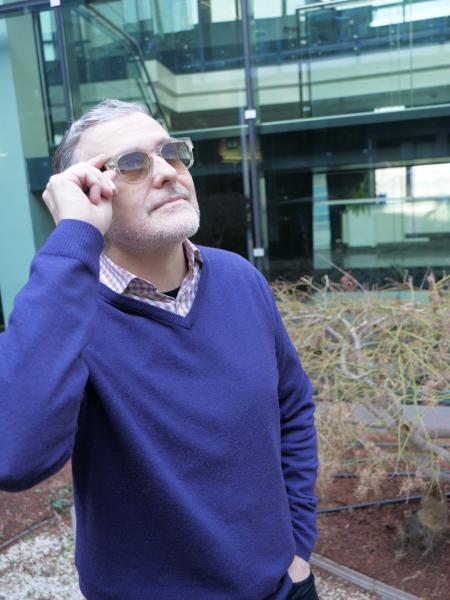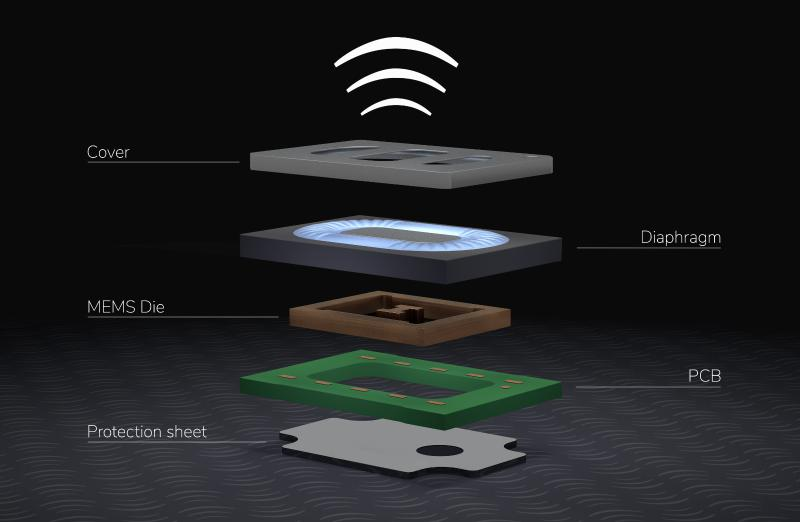Die österreichische Hightechfirma USound präsentiert die kleinsten Lautsprecher der Welt: Sie basieren auf einer originär digitalen Technologie und verbrauchen 80 Prozent weniger Strom.
Teenagers often find their parents’ ideas irritating or irrelevant. But since Ferruccio Bottoni launched Fauna glasses two years ago, his daughter can’t stop using them.
“Based on the feedback of my daughter and her classmates I realized how extremely helpful are our Fauna glasses for schoolchildren, students, and professionals that deal every with a large amount of digital content,” says Bottoni, co-founder and chief executive of USound, a company which develops and markets micro-loudspeakers based on MEMS (Micro-Electro-Mechanical System) technology.
Fauna glasses have built-in headphones and keep your hands and ears free.
The open ear audio system combined with blue-filter lenses protect your eyes and ears. USound, which outsources manufacturing to industrial partners, has been growing fast since the start in 2014, with a current headcount of 80 people. But the COVID-19 pandemic was a setback.
“The pandemic impacted international supply chains and hence our plans,” says Bottoni.
This is one of the reasons why he took a €15 million loan from the EU Bank to continue providing customers with USound’s microspeakers and to expand its mass production ramp-up. The financing is supported by the European Guarantee Fund, which shields companies suffering from the COVID-19 crisis.
“We are scaling up quickly and we will move from 500 000 to 5 million manufactured speakers in less than 9 months. The European Investment Bank has given us a tremendous boost to ramp-up and scale in the midst of a pandemic,” says Bottoni.

Ferruccio Bottoni is co-founder and chief executive of high-tech company USound.
From mechanics to microelectronics
The audio components in smartphones, tablets and headphones haven’t changed much since the nineteenth century. The sound-emitting parts of audio systems haven’t transitioned to the digital age yet.
USound’s idea is to build micro-loudspeakers based on semi-conductor technology. By replacing the coil that moves in conventional silicon systems, these light, small speakers can be integrated into technologies requiring more minimal designs, such as audio glasses, true wireless earbuds and ultrasound applications.
“USound has brought the next level of integration to the audio industry," says Trudpert Schelb, the European Investment Bank sector expert involved in the deal. “This is one of the most important developments in loudspeaker technology in recent years enabling multiple new audio applications.”
Silicon is a versatile material with electrical and mechanical properties. Microelectronics are usually based on silicon chips, which are fabricated by highly scalable semiconductor processes. MEMS technologies, like sensors and actuators, make use of these processes to combine electrical and mechanical functions.
USound MEMS speakers have several other advantages:
- an extended bandwidth, which allows for HD audio as well as ultrasound applications in miniature devices
- they use up to 80% less energy than conventional components
- a competitive price, even though production is in Europe, mostly in Italy
- they produce accurate and clear sound.

USound MEMS technology enables miniaturised devices.
Three friends, a muse and a loan
Bottoni was in good company when he decided to leave his job in a big corporation to start his business. His friends and colleagues Andrea Rusconi and Jörg Schönbacher made the same “leap in the dark”, says Bottoni.
They founded USound to develop MEMS in loudspeakers and succeeded, they say, “inspired by Euterpe, the muse of music.” But the COVID-19 pandemic disrupted the supply chain completely. Projects were delayed or cancelled. Electronic components are still very difficult to source, which is delaying customer projects. That’s where the European Guarantee Fund came in.
“In the mid of an unprecedented pandemic, with all kind of supply-chain hurdles, the EIB financing will help us hugely with our working capital and will support our strong manufacturing ramp-up,” says Bottoni. USound’s next challenge is to scale mass production, so that it can market devices for headphones, mobile phone and tablet, television desktop and smart speaker.
Meanwhile, Fauna glasses are being appreciated by more and more users. Like Bottoni’s daughter.
